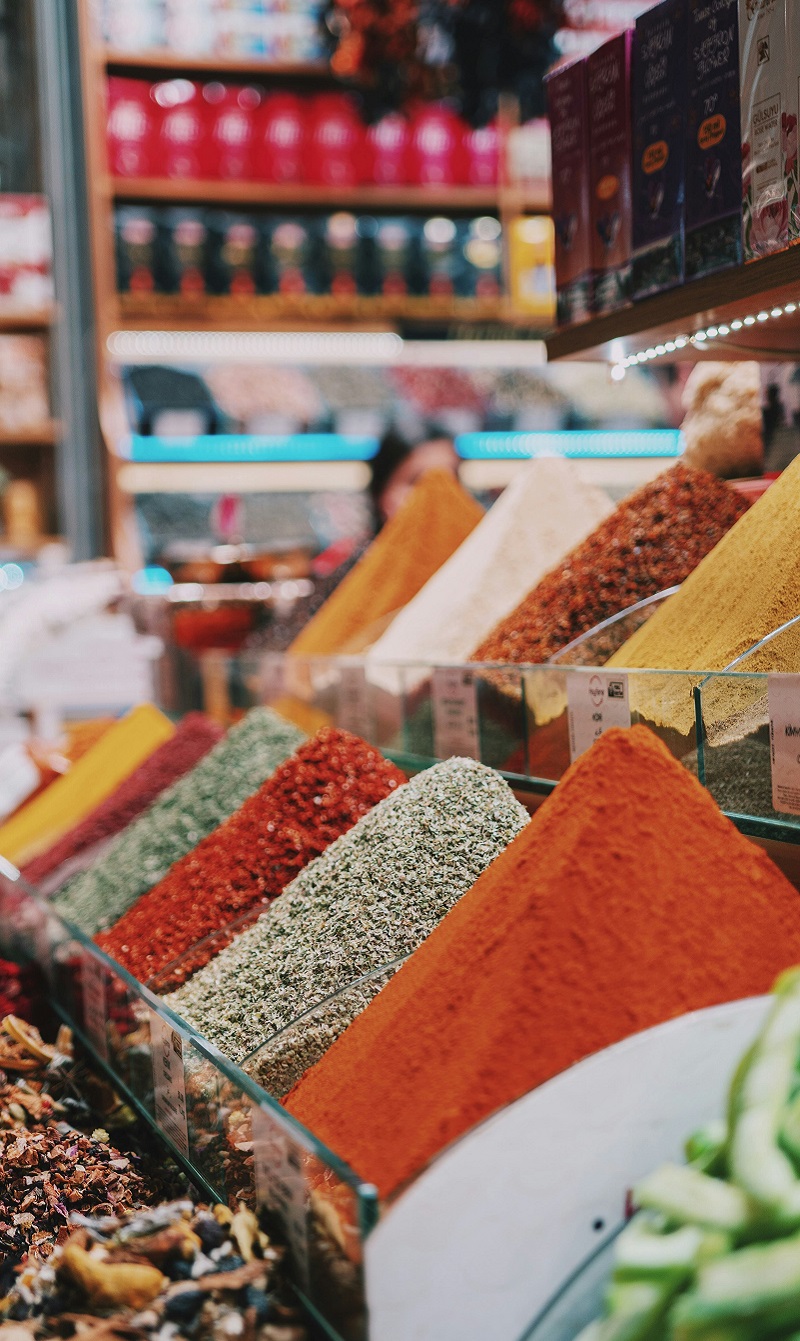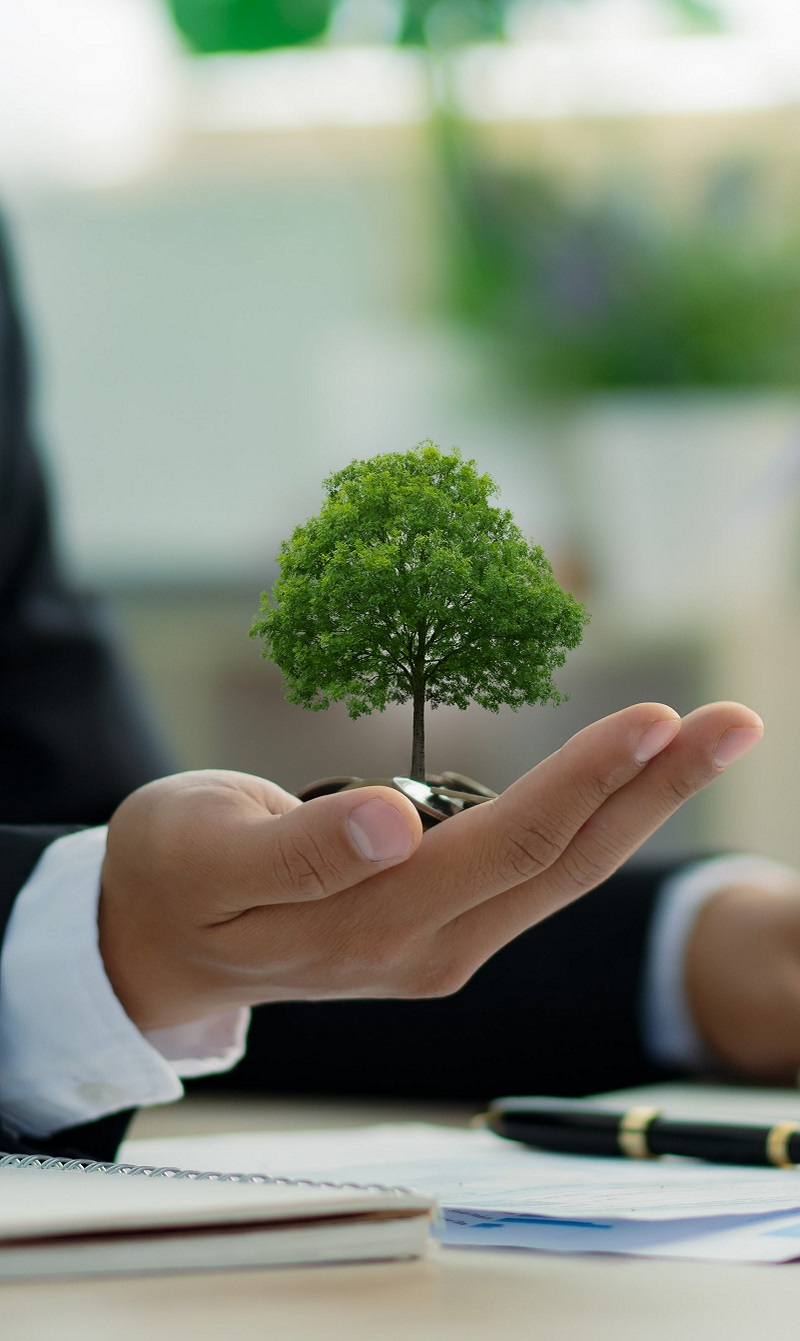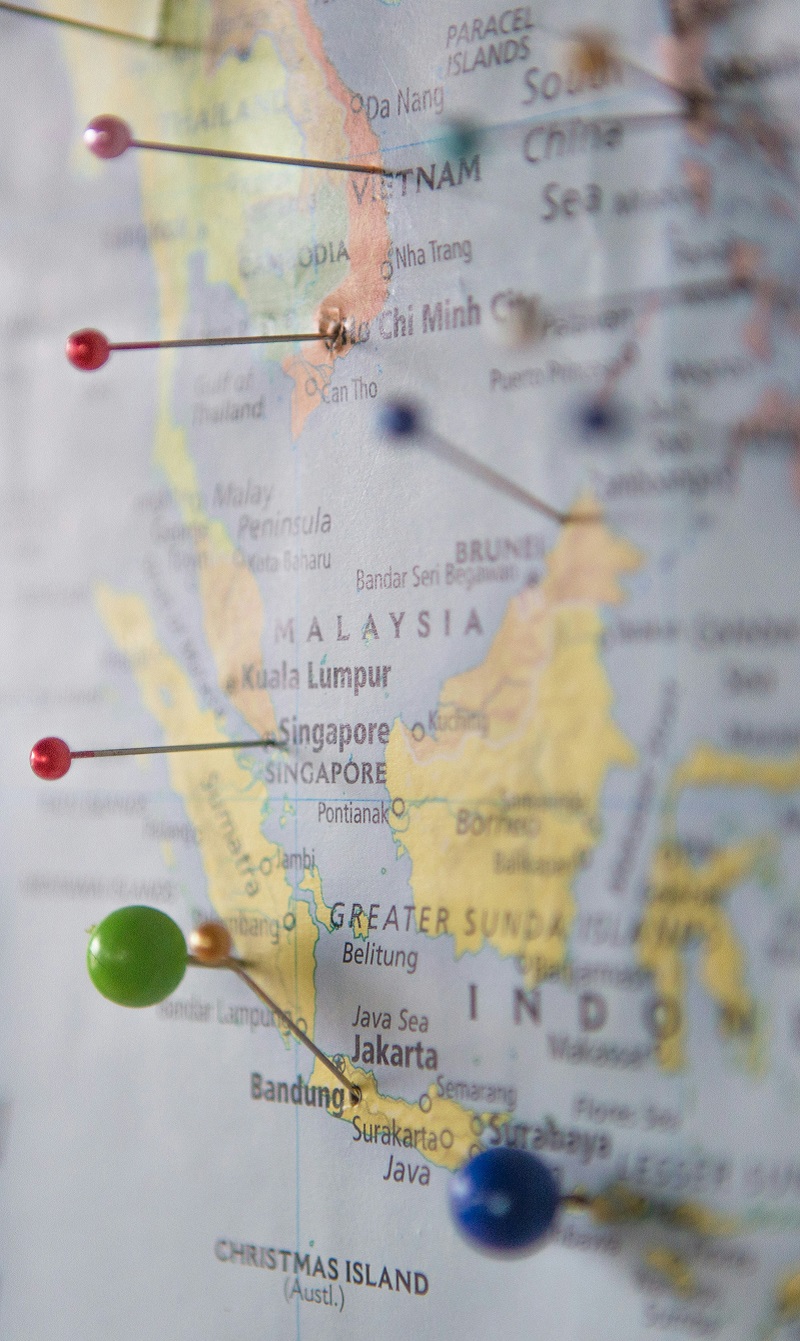Responsible Businesses
The future of business is sustainability, but does it meet its profit target and can it be a long-term investment? As examples, here are three Malaysian organisations that take the high road toward sustainability and keeping to minimum negative impact.
Free Tree Society
Free Tree Society was created to get urbanites to bond with nature in their home environment. The goal was simple: to plant seeds, nurture the seedlings, then give away the plants to people on environmental holidays like World Earth Day. A disconnect between people and the environment has grown due to half the world’s population living in cities. ‘People say my grandmother use to plant so much but I don’t know how. We want to bring this skill back and recreate an affinity between people and plants,’ says Baida Hercus, founder and executive director of Free Tree Society Kuala Lumpur.
Since they have moved into their first nursery in 2013, today Free Tree Society has evolved from just a community of gardeners. They now have the Environmental Stewardship training programme that revolves around the protection and responsible use of the natural environment through conservation and sustainable practices. The programme touches on the science, the impacts and solutions of climate change, the threat of the collapse of the ecosystem and how to support biodiversity and the overwhelming issue of plastic pollution and how to take control of our waste and be responsible consumers.
‘I’ve always loved plants and nature. I also love the idea of Arbor Day, an environmental holiday they celebrate in Australia during which you receive a free native tree to plant – and I wondered why it was never celebrated in Malaysia. I developed a concept paper for starting up a society based on the concept of Arbor Day and a conversation with the right person at the right time made this idea a reality. From the original idea of giving away trees, the organisation has developed into so much more,’ says 42-year-old Baida.
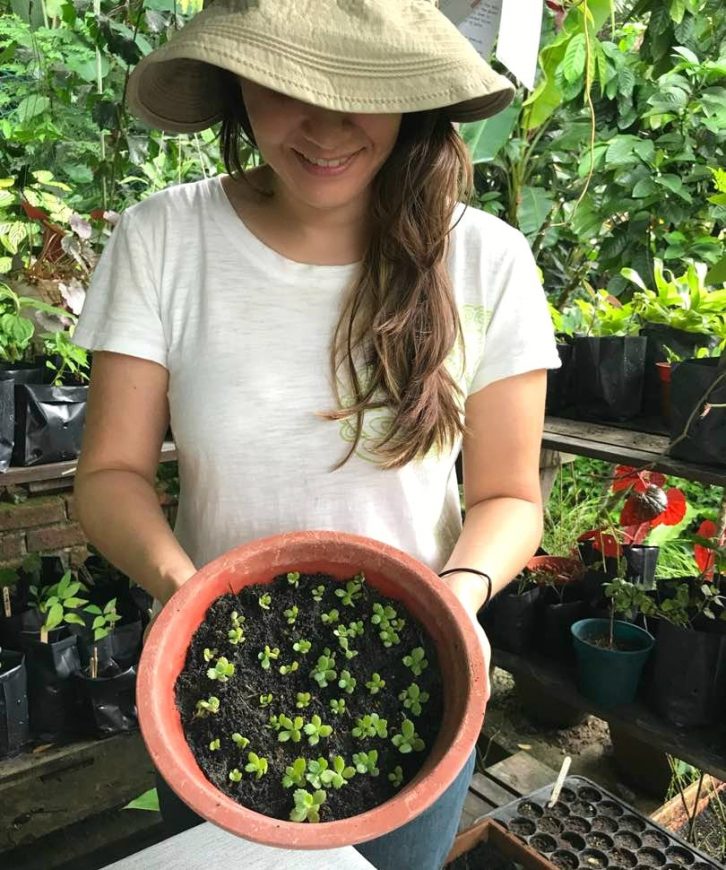
A fan of social enterprises, Baida is particularly fond of zero waste – be it personal hygiene, farming and grocery co-ops or interesting ideas for reusing or renting fashion. People have turned their passion for sustainability into small profitable businesses. The social enterprise business model is more fun than running a non-profit organisation (NGO). NGO’s have a lot of restrictions, red tape and governance regulations, especially in Malaysia. ‘We’re a relatively new organisation and have grown organically, powered by volunteers. Last year we decided to hire our first few staff as demand and interest for our organisation resulted in the need for manpower that goes beyond what a volunteer is willing to offer. We currently have two full time and one part time staff. Ideally our workload should be powered by a larger human resource team, so now we need to manage our financial resources to ensure we can balance the two and continue to grow while the need is there,’ says Baida.
The ultimate goal for Free Tree Society is to work towards a sustainable future. To move towards that, they run three separate environmental programmes: Bangsar Nursery, Taman Tugu Nursery and a mobile outreach programme called Free Tree Society On-the-Go. The Bangsar Nursery focuses on planting for an urban setting – homes, schools and community gardens. Meanwhile, Taman Tugu focuses on planting to reforest parks and jungles. On-the-Go takes educational models of learning directly to educational institutions – schools and universities where Free Tree Society can interact directly with teachers and students about areas of environmental concern – energy, gardens, waste, climate change.
‘We run through the basics of mixing soil, transplanting, planting seeds, propagation techniques and natural fertilisers and pest repellents. After this we set the volunteers to work – they do all the planting, gardening, and stock management to essentially create and grow our stock of free trees. Throughout the nursery we’re sustainable and the tour includes demonstrations and use of our rainwater harvester, composting station, worm bins, solar system, recycling station, and our many wildlife habitats,’ says Baida.
However, is it realistic being in a sustainable business? According to Baida, as an NGO they cannot rely on selling a product or service. So, they appeal to other organisations for funding, grants and sponsorship to buy into their vision for a sustainable and healthy planet. Finding volunteers is easy in comparison. Obtaining funds is harder – there are companies with no cash policies.
That said, there’s demand for all things environmental and sustainable. The awareness of climate change, ecosystem collapse and plastic pollution is growing and as people wakeup, they realise they need to learn more and change their behaviour. To make the business profitable, branding is crucial. Free Tree Society regularly held dialogues with their stakeholders, and to always be genuine by thinking outside of the traditional business flows and relationships. ‘When people hear the word “free” they get excited. I was wearing my Free Tree Society work T-shirt at the mall and paying for some groceries yesterday. The lady behind me was excitedly chanting, “free trees, free trees!” People haven’t yet realised the word “free” is the lure to brainwash them into changing their values to create a greener and more sustainable Malaysia,’ says Baida.
The Hive
Claire Sancelot wanted to start The Hive Bulk Foods so that she could offer plastic free utensils and healthier alternatives for consumers. After two years, Claire realised that they were not making a profit. ‘It’s normal for a business not to make profit in the first two years but today, we are making profit thanks to clients who realise the benefits of buying plastic free,’ says Claire.
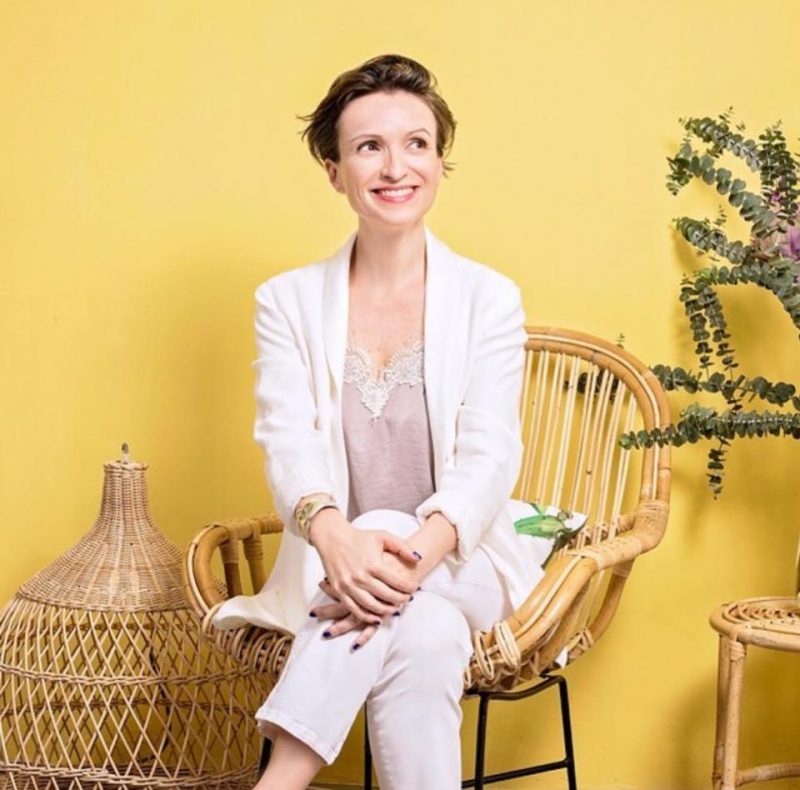
The first zero waste store in Malaysia, the Hive Bulk Foods have stores located in Ampang and Bangsar, which are neighbourhoods in Kuala Lumpur. They sell over 300 bulk whole foods to personal care products and even dog treats. They also practice a Zero Waste approach to shopping by encouraging consumers to bring their own reusable packaging (bottles, containers and bags) to reduce wastage. Besides that, they offer a great selection of paper bags to use, as well as bottles and jars to purchase if consumers forget to bring their own.
According to Claire, to keep a sustainable business is trickier than other businesses. ‘This is because our products are usually slightly more expensive than industrially made products but customers understand that our products last much longer so it’s an investment and they’ll save money down the line. A perfect example would be washable sanitary pads,’ says Claire. In her opinion what drives sustainability is the mental health of doing something right in the long run. Although, she agrees that in terms of profit, a sustainable business may take longer to reap profits.
Eats, Shoots and Roots
Eats, Shoots and Roots, based in Selangor, came about because it encompassed everything that they do: grow roots and shoots that can be eaten. Also, it was a spin off and inspired by the phrase – Eats, Shoots and Leaves. ‘There are challenges with every business and having an environmentally and socially positive business is no different. We try to look at all aspects of the value chain and ask ourselves what are we solving, who benefits, and what value as well as impact, are we creating,’ says Beatrice Yong, co-founder of Eats, Shoots and Roots.

According to Beatrice, the challenges are to grow and still keep true to the values that they started with. Sustainable practices could take longer term planning to see results, which could sacrifice short term returns but if one can balance it out well, then there’s a way forward. The aim of Eats, Shoots and Roots is to empower people with the skills and tools to grow their own food in the city. ‘We do that by providing educational workshops, gardening kits, and by designing and building edible gardens for people,’ says Beatrice.
In terms of profit in Eats, Shoots and Roots Beatrice says that financial performance should not be the only indicator of success. There’s a growing consumer movement and people are realising the impact of businesses on communities and the environment and they’re starting to demand that businesses take responsibility. And for businesses that do take up the opportunity, it could translate to an edge over others. ‘Just like any other business, it takes a bit of ingenuity, thinking outside of the box plus a dose of daring-ness to come up with solutions that can impact others positively,’ she concludes.



